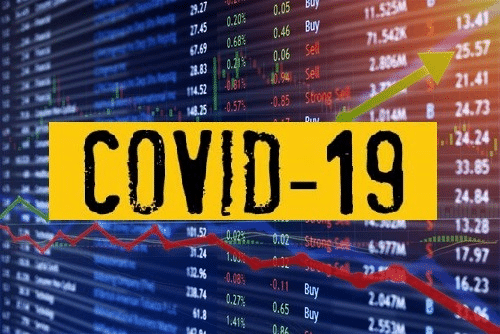COVID-19 Market Volatility

As the coronavirus continues to spreads, we are all being impacted by the social and financial strains. As a result, we wanted to provide market commentary to help inform you on the impact of these events and offer some perspective to help you weather these difficult times.
Our retirement team is committed to helping you navigate this crisis and will remain in contact as things progress.
While it may feel like it, this situation is not unprecedented. While they vary in severity, financial crises come and go, in each instance there is a dramatic market correction and fear drives the markets. This is not to diminish the severity of the situation, or to assume there is not more market volatility ahead. But each time, once the crisis abated, markets quickly recovered and continued to rise to new heights.
Invest for the long term
We should only change investments for the right reasons. For example, gradually shifting your investment mix from more aggressive to more conservative as you approach retirement; or rebalancing your portfolio on a regular schedule, are both reasonable approaches to long-term investing. Moving all of your money from equities to cash during a market panic is less so, and could lock in losses that you may never recover. When markets are volatile, it can be easy to discard your strategy and follow the herd. Before you decide to initiate any significant transaction in your retirement account, don’t act on impulse. Make sure to put your long-term savings strategy ahead of any short-term fears.
Stay the course
While each investor is unique, creating a long-term plan and staying the course will be rewarded. Deeper contractions tend to be followed by sharper recoveries. But when markets decline, we feel compelled to take action, history tells us this is a fool’s errand.
If the Global Financial Crisis of 2008 taught us anything, it’s that markets tend to rebound when you least expect, and they tend to do it very quickly. In March 2009, the S&P 500 was at 676. By September 2009, just six months later, the S&P 500 stood at 1,025, an increase of over 50%. Staying invested in the face of a crisis takes a strong stomach, but bailing out with the idea that you’ll jump back in once the market turns can be a disaster. First, by getting out while the market is falling, you turn paper losses into real losses. Second, because picking the actual bottom is extremely difficult, you’re likely to suffer the double-hit of missing out on the best of the rebound as well. If well-constructed, patience and adherence to your plan is the best course of action.
COVID-19 Resources
For more resources on coronavirus (COVID-19) visit our resource page which is being updated regularly with new information and resources.
If you have any question regarding your Retirement plans please contact us.

